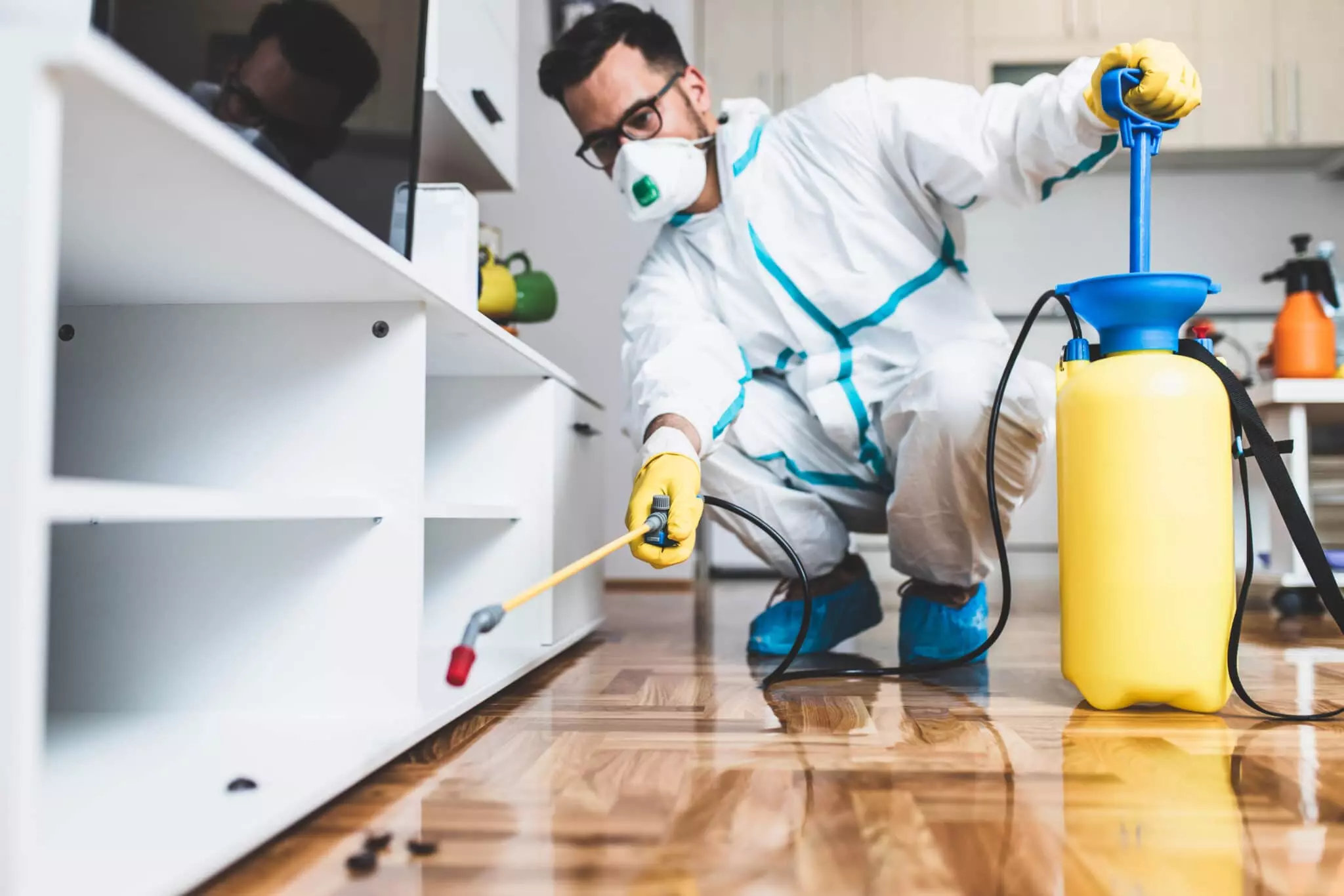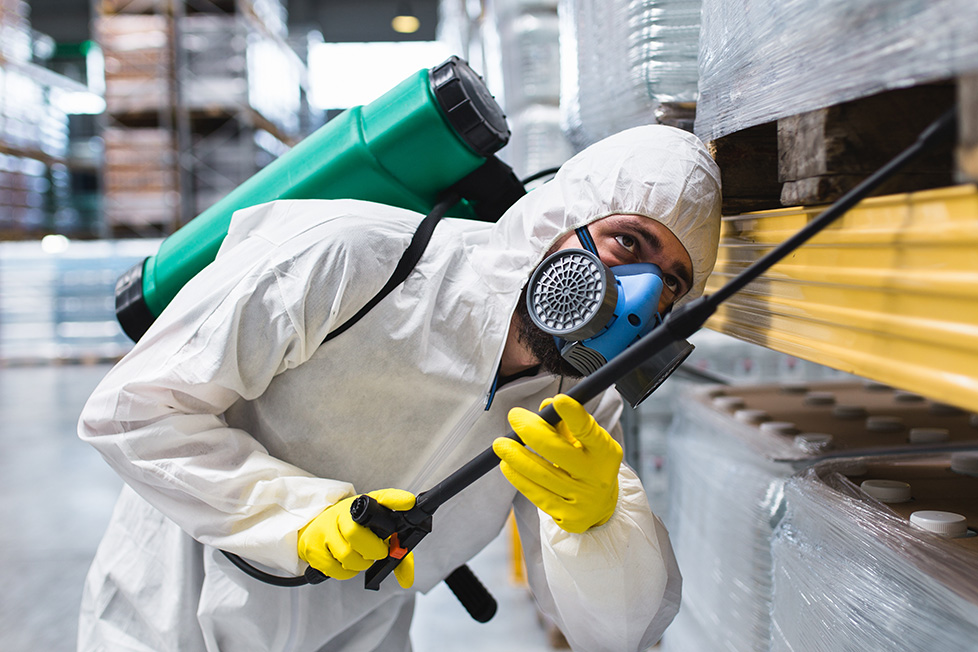Discover the Tricks of Bug Control: Just How It Functions and Process Revealed
Insect control is a precise technique that entails a deep understanding of parasite habits, calculated preparation, and accurate implementation. From identifying the source of problems to executing tailored control measures, the procedure of pest control is a blend of science and technique intended at preserving a harmonious environment. Nonetheless, the complexities of this process usually remain veiled, shrouded in secret. Unraveling the nuances behind efficient parasite control unveils a globe of organized strategies and meticulously calculated actions that are crucial in combating and stopping pest-related concerns.
Bug Behavior Understanding
Comprehending the complex actions of pests is crucial for efficient bug control monitoring. The behavior of roaches, such as their choice for dark and humid atmospheres, overviews pest control specialists in figuring out where to focus treatment efforts.
By staying abreast of the latest research on bug actions, pest control specialists can constantly improve their approaches and remain in advance of progressing insect populaces. Eventually, a deep understanding of bug behavior is a keystone of effective parasite control management.

Examination and Identification Approaches
Effective pest control management depends greatly on meticulous assessment and accurate identification approaches to properly analyze problems and develop targeted removal strategies. Assessment involves a comprehensive exam of the residential or commercial property to determine the extent of the insect trouble, identify the type of bug present, and find potential access factors. This process may include aesthetically inspecting common hiding places, using monitoring devices such as traps or cameras, and evaluating pest droppings or damages signs.
Identification is a critical action that follows examination, as different parasites call for particular therapy methods. Insect control experts utilize their know-how and knowledge of insect behavior to identify the species existing accurately. This might involve analyzing physical attributes, such as dimension, shade, and markings, in addition to examining the insect's routines and habitats. In many cases, samples might be accumulated for more evaluation in a research laboratory to confirm the insect varieties.
Insect Control Steps Execution
Having thoroughly checked and accurately determined the insects present, the following essential step is the application of targeted pest control actions to successfully get rid of the invasion. Chemical therapies involve the usage of pesticides to remove insects, while organic controls present all-natural predators to manage bug populations.
Correct implementation of bug control measures needs competence to guarantee the safety of citizens and the environment. By employing targeted insect control steps, invasions can be efficiently removed, creating a healthier and pest-free setting.
Environmental Effect Considerations
When carrying out pest control steps,Cautious assessment of the potential ecological effect is a vital facet. Insect control approaches can have numerous impacts on the atmosphere, including non-target types being affected, contamination of soil and water sources, and disruption of the ecosystem. It is vital to take into consideration these factors to decrease any kind of unfavorable consequences on the environment.
To minimize environmental effects, incorporated parasite administration (IPM) approaches are often recommended. IPM concentrates on using a mix of methods such as biological control, habitat adjustment, and the targeted use pesticides as a last option. Pest Control Homestead. By employing an all natural method, IPM intends to manage parasites successfully while decreasing damage to the setting

Continuous Surveillance and Avoidance
Continual monitoring and avoidance play pivotal duties in keeping effective pest control techniques in time. When preliminary insect control procedures have actually been carried out, ongoing surveillance becomes vital to track pest activity degrees and ensure that the chosen techniques are functioning properly. Routine assessments by qualified professionals enable the early discovery of any type of indications of insect resurgence, making it possible for swift action to be taken before the infestation escalates.
Precautionary actions are equally critical in maintaining a pest-free environment. Applying techniques such as sealing access points, keeping cleanliness, appropriate waste monitoring, and decreasing sources of food and water deprive insects of the fundamentals they require to flourish. By proactively dealing with these variables, the probability of a parasite problem is significantly reduced.
Furthermore, safety nets add to the lasting success of bug control initiatives, decreasing the need for reactive treatments and associated expenses. By incorporating recurring monitoring and prevention into an extensive bug monitoring strategy, people and organizations can effectively protect their residential properties versus undesirable intruders.
Conclusion
In verdict, bug control entails understanding pest behavior, performing detailed inspections, carrying out control procedures, thinking about ecological influences, and maintaining ongoing tracking and avoidance. By following these steps, pest invasions can be properly handled and managed. It is important to take a proactive approach to pest control to secure both human wellness and the setting.
By staying abreast of the latest research on bug actions, pest control experts can constantly refine their techniques and remain in advance of advancing insect populations.Having actually carefully inspected and properly identified the bugs present, the next vital step is the execution of targeted pest control actions to successfully eradicate the problem.In addition, selecting ecologically pleasant insect control products and methods can substantially reduce the ecological impact of pest management practices - Pest Control Homestead. Once initial bug control procedures have actually been applied, look these up ongoing monitoring comes to be important to track insect activity levels and guarantee that the selected approaches are working properly.In verdict, parasite control entails understanding pest behavior, conducting comprehensive evaluations, implementing control actions, thinking about environmental influences, and keeping ongoing surveillance and avoidance